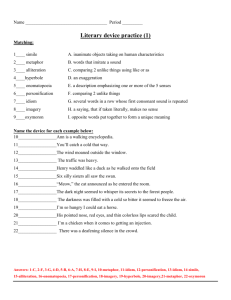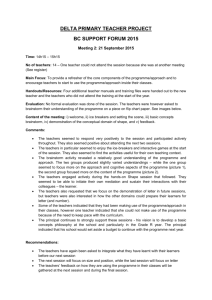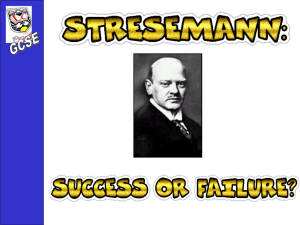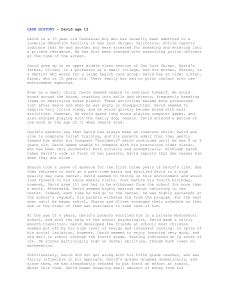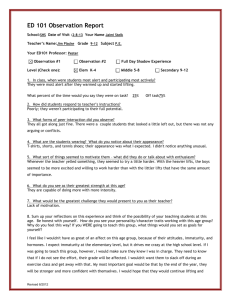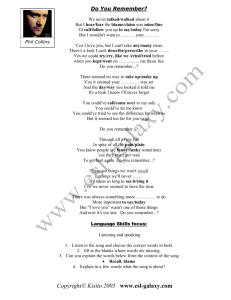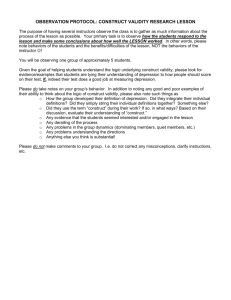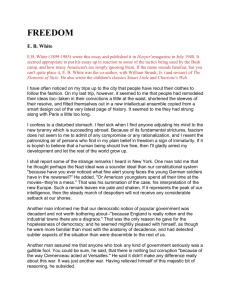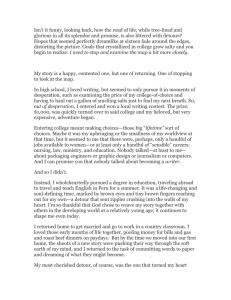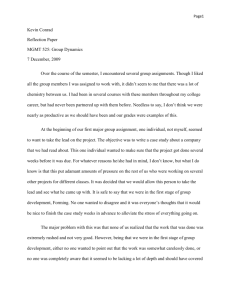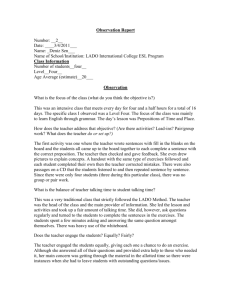I never cared for a dull life
advertisement
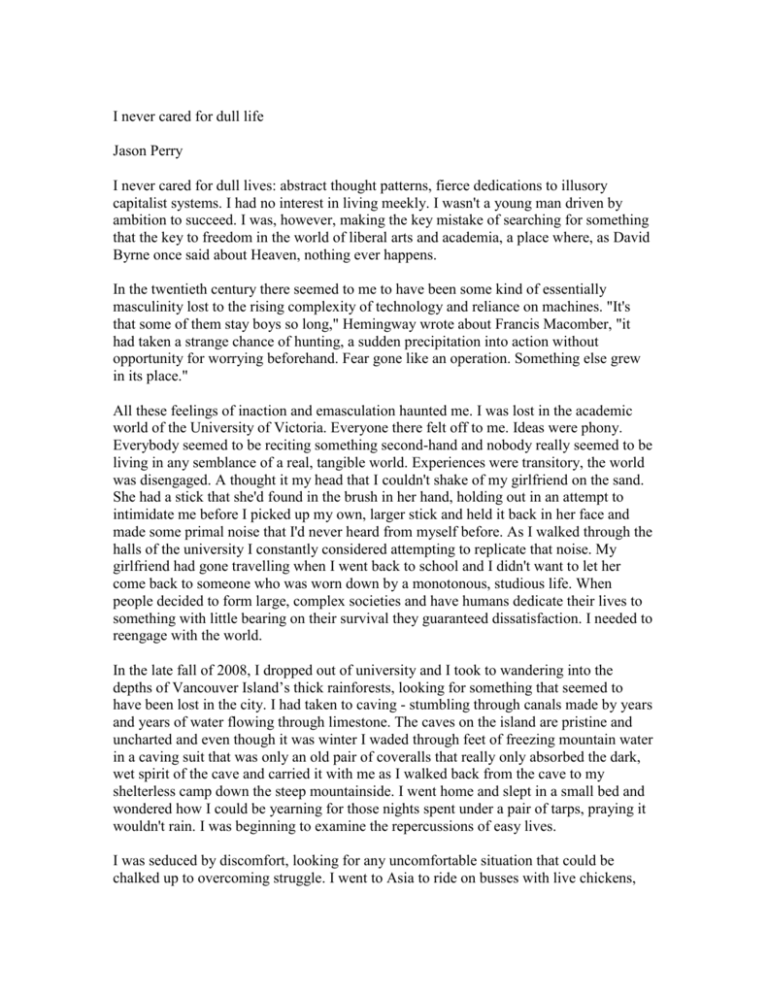
I never cared for dull life Jason Perry I never cared for dull lives: abstract thought patterns, fierce dedications to illusory capitalist systems. I had no interest in living meekly. I wasn't a young man driven by ambition to succeed. I was, however, making the key mistake of searching for something that the key to freedom in the world of liberal arts and academia, a place where, as David Byrne once said about Heaven, nothing ever happens. In the twentieth century there seemed to me to have been some kind of essentially masculinity lost to the rising complexity of technology and reliance on machines. "It's that some of them stay boys so long," Hemingway wrote about Francis Macomber, "it had taken a strange chance of hunting, a sudden precipitation into action without opportunity for worrying beforehand. Fear gone like an operation. Something else grew in its place." All these feelings of inaction and emasculation haunted me. I was lost in the academic world of the University of Victoria. Everyone there felt off to me. Ideas were phony. Everybody seemed to be reciting something second-hand and nobody really seemed to be living in any semblance of a real, tangible world. Experiences were transitory, the world was disengaged. A thought it my head that I couldn't shake of my girlfriend on the sand. She had a stick that she'd found in the brush in her hand, holding out in an attempt to intimidate me before I picked up my own, larger stick and held it back in her face and made some primal noise that I'd never heard from myself before. As I walked through the halls of the university I constantly considered attempting to replicate that noise. My girlfriend had gone travelling when I went back to school and I didn't want to let her come back to someone who was worn down by a monotonous, studious life. When people decided to form large, complex societies and have humans dedicate their lives to something with little bearing on their survival they guaranteed dissatisfaction. I needed to reengage with the world. In the late fall of 2008, I dropped out of university and I took to wandering into the depths of Vancouver Island’s thick rainforests, looking for something that seemed to have been lost in the city. I had taken to caving - stumbling through canals made by years and years of water flowing through limestone. The caves on the island are pristine and uncharted and even though it was winter I waded through feet of freezing mountain water in a caving suit that was only an old pair of coveralls that really only absorbed the dark, wet spirit of the cave and carried it with me as I walked back from the cave to my shelterless camp down the steep mountainside. I went home and slept in a small bed and wondered how I could be yearning for those nights spent under a pair of tarps, praying it wouldn't rain. I was beginning to examine the repercussions of easy lives. I was seduced by discomfort, looking for any uncomfortable situation that could be chalked up to overcoming struggle. I went to Asia to ride on busses with live chickens, constantly be on alert or lest end up stranded or taken advantage of, operate with actual consequences for actions. I began to learn about tactile experiences but when I got back to North America I began to face the same problems that I'd hoped to have left behind for good. I slept on a bedmat on a friend's laminate floor but every day I woke up and none of my actions seemed like they had anything but theoretical meaning. It seemed like the only commonly accepted solution was to dull the desire for visceral experiences and try to get by. I arrived at TRU and enrolled in journalism school. I wanted to study experiences.
